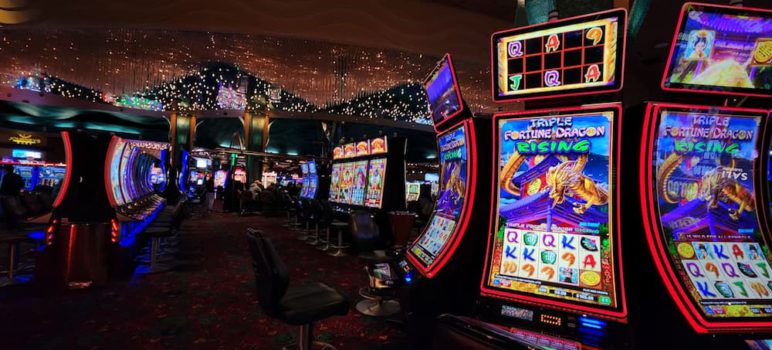Published in cooperation between BetMGM Money Casino and San Jose Inside
In recent years, tribal casinos have become a significant force in California's gaming industry. These establishments, operated by Native American tribes, have not only transformed the economic landscape but also brought cultural and social benefits to their communities.
History of Tribal Casinos in California
Tribal casinos in California have a rich history dating back to the 1980s. The landmark 1987 Supreme Court case, California vs. Cabazon Band of Mission Indians, played a pivotal role in establishing the legal framework for tribal gaming across the United States. This decision affirmed the right of tribes to operate gaming facilities on their lands, leading to a significant concentration of such casinos in California. The state's large Native American population and the availability of tribal lands have further contributed to this concentration.
Evolution of Tribal Casinos
Tribal casinos have evolved significantly from their early days as simple bingo halls. Today, many have transformed into sprawling resorts offering a wide range of amenities. This evolution has helped tribal casinos attract a broader clientele and create a more sustainable business model. The evolution of tribal casinos is a fascinating journey from modest beginnings to becoming major entertainment hubs. Here are some key points:
- Early Beginnings: Tribal casinos began in the 1970s and 1980s as simple bingo halls. These humble establishments set the stage for future developments.
- Legal Milestones: The 1987 Supreme Court decision in California vs. Cabazon Band of Mission Indians was a turning point. This ruling affirmed the right of tribes to operate gaming facilities on their lands, leading to the Indian Gaming Regulatory Act (IGRA) of 1988. IGRA established a regulatory framework for tribal gaming and paved the way for the expansion of tribal casinos.
- Expansion and Diversification: Over the years, tribal casinos have evolved from basic gaming halls to comprehensive resorts. Modern tribal casinos offer a wide range of amenities, including hotels, restaurants, golf courses, and entertainment venues. This diversification has helped attract a broader clientele and create a more sustainable business model.
- Economic Impact: Tribal casinos have become significant economic drivers for many Native American communities. They generate substantial revenue, which is often reinvested into community development projects such as healthcare, education, and infrastructure.
Comparison to Commercial Casinos
While both tribal and commercial casinos offer similar gaming experiences, there are key differences. Tribal casinos are located on sovereign tribal lands and are managed by the tribes themselves, whereas commercial casinos are typically owned by corporations and located on non-tribal lands. Additionally, tribal casinos often reinvest their profits into community development projects, whereas commercial casinos distribute profits to shareholders.

Why Tribal Casinos Thrive
Tribal casinos are thriving for several reasons. One significant factor is the absence of online casino legalization in California. As of now, California is one of the states that has not granted legalization to an online casino in the USA. This has driven many gaming enthusiasts to visit tribal casinos for their gambling needs. Additionally, tribal casinos benefit from their unique status, which allows them to offer a variety of gaming options that might not be available in commercial casinos.
Future Expectations
Looking forward, tribal casinos are expected to continue evolving. Here are some potential future changes.
Expansion of Physical Casinos
Several tribes in California are actively planning or constructing new casino projects. As of now, there are at least 10 tribes with active casino projects in various stages of development. This expansion is expected to bolster an industry that already generates significant revenue, contributing to the economic growth of tribal communities.
Potential Legalization of Online Gambling
The legalization of online gambling remains a hot topic. While California has not yet granted legalization to online casinos, there is ongoing discussion about this possibility. If online gambling is legalized, it could open new revenue streams for tribal casinos, allowing them to offer online gaming options alongside their physical operations.
Integration of Sports Betting
Sports betting is another area with significant potential. There are efforts to legalize in-person sports betting by 2026, followed by online platforms by 2028. Tribal casinos are expected to play a crucial role in this market, leveraging their existing infrastructure and customer base to offer sports betting services.
Technological Advancements
Tribal casinos are likely to continue integrating advanced technologies to enhance the gaming experience. This includes the adoption of cutting-edge gaming systems, improved security measures, and digital platforms that offer a seamless experience for customers.
Economic and Community Development
Revenue generated from tribal casinos is often reinvested into community development projects. This trend is expected to continue, with funds directed towards healthcare, education, infrastructure, and other essential services. This reinvestment benefits the tribal communities and contributes to the broader economic development of the regions where these casinos are located.

What Does the Future Hold?
The rise of tribal casinos in California showcases the strength and enterprising nature of Native American tribes. Starting as bingo halls, these casinos have grown into major entertainment centers, greatly impacting the state's economy and the welfare of tribal communities.
The future looks promising with potential expansions, technological advancements, and the potential legalization of online gambling and sports betting. As these casinos continue to develop, they will undoubtedly remain a crucial part of California's gaming industry, fostering economic growth and community development for years to come.

